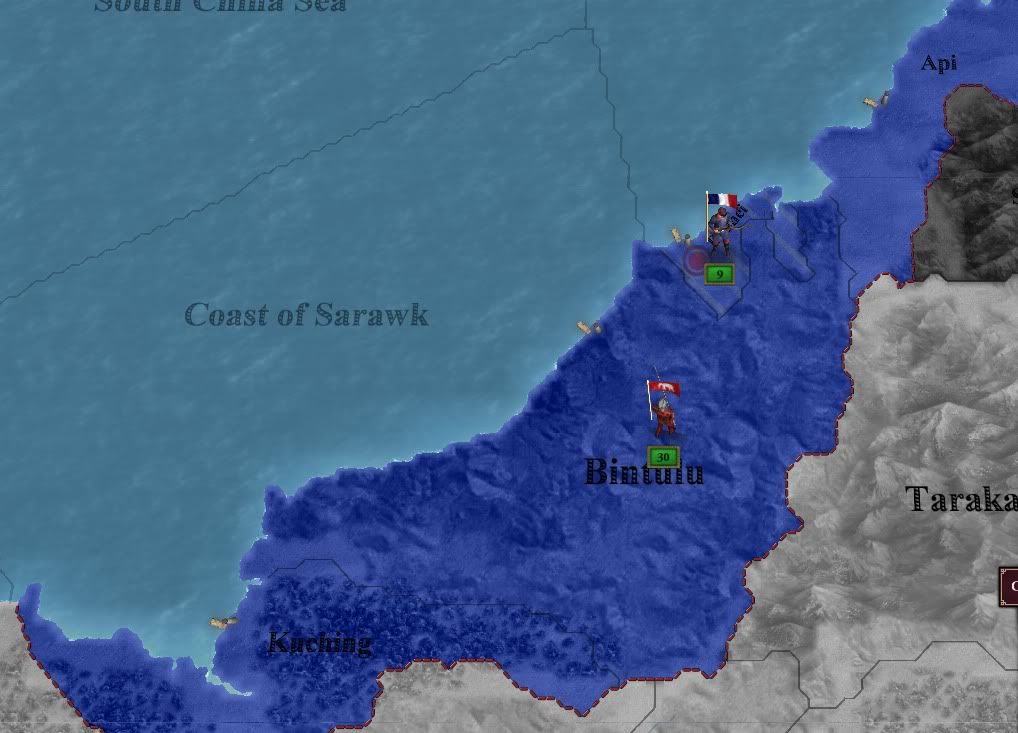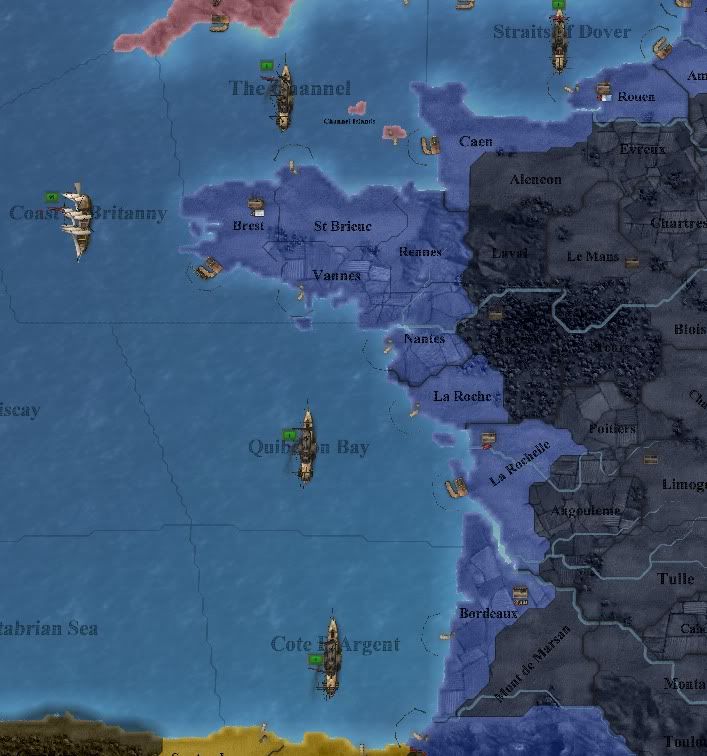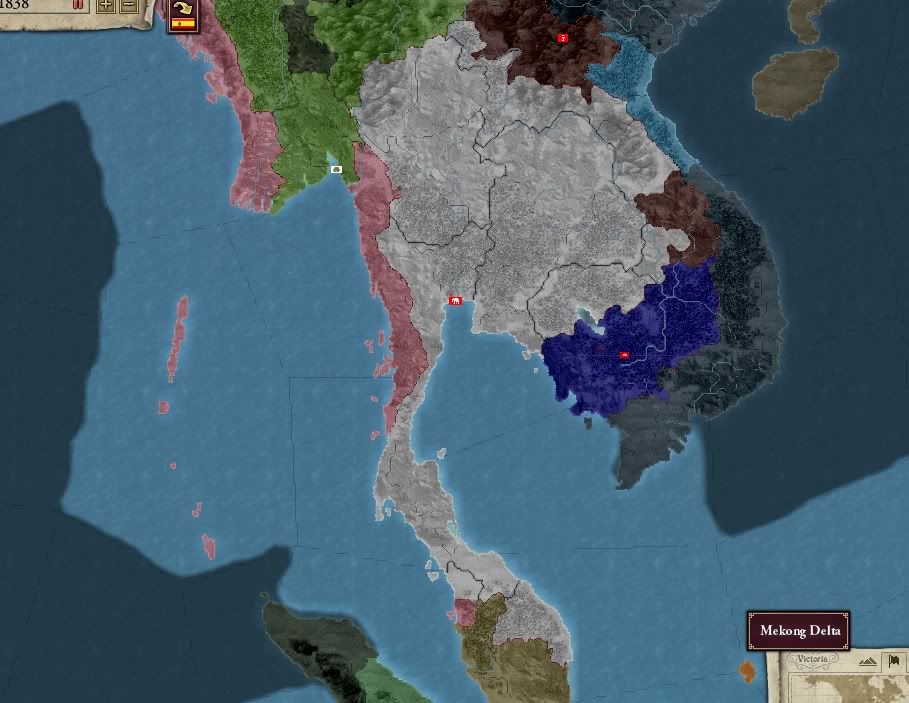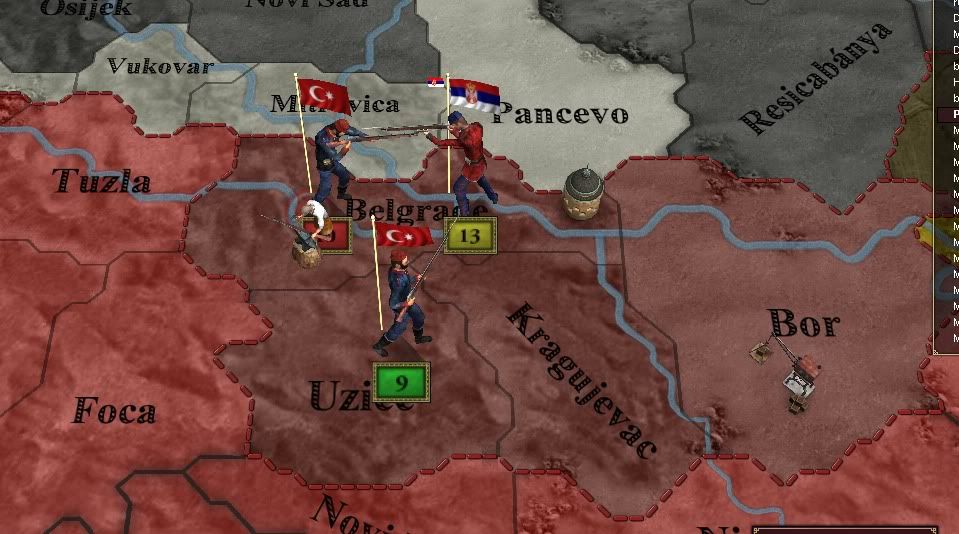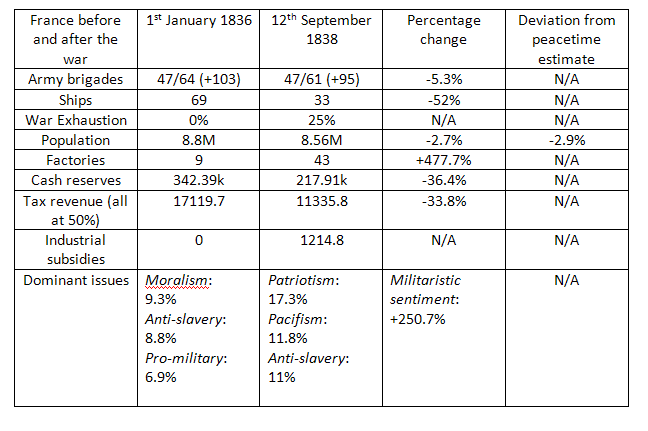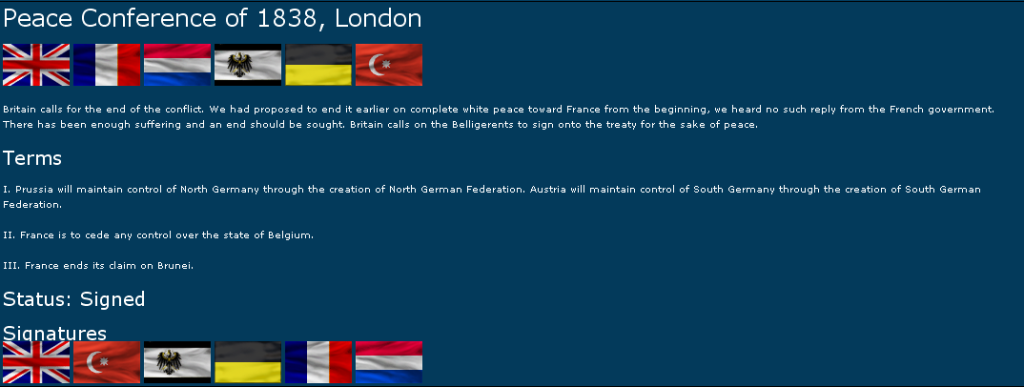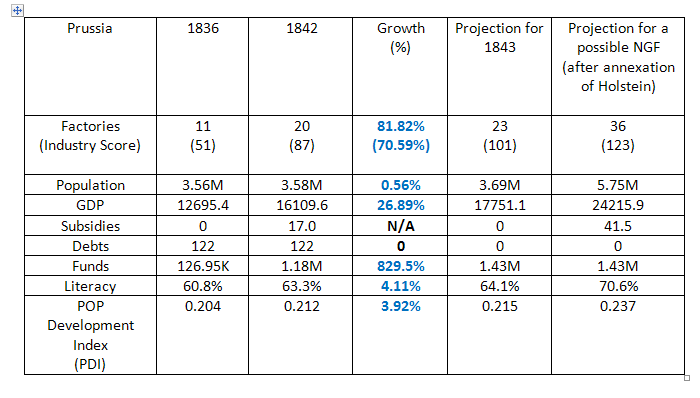Edition two of the World Hstory magazine
The course of the Brunei War and the London Peace Treaty of 1836
After roughly two years of fighting the Brunei war is now finally over with the signing of the London Peace Treaty. The moment the Treaty was signed by France – which took considerable lobbying by all great powers – a sigh of relief went through the World. The order within Europe was restored, the Balance of Power was rebuilt and the people had been saved from another Napoleonic war. Or so it seems.
This special edition of the World History magazine will take at the closer look at the newest British attempt to pacify the world. We will try to find out what the merits of this document are, where it fails and what consequences such failures could have. We will further try to deduce if the Treaty really will put an end to war or if it will turn out to be a “definitive Treaty of peace”, like the Treaty of Amiens which by definition was not definite at all. Lastly we will attempt to analyse if the treaty is just or if it is a dictate that marks the criminal end to a criminal war.
Before we however go into the deep analysis, we shall first take a quick look on the war itself. The Brunei war was, as the name suggests, caused mainly due to a territorial conflict over the uncivilized state of Brunei in South-East Asia. The war was fought between the coalition, which included Brunei, Siam, the Netherlands, Prussia, the Ottoman Empire and was lead by the United Kingdom, and the French Pact which consisted of France and Russia. Yet, contrary to what one might expect, the bulk of the fighting actually occurred in the North Sea. While France did attempt to take Brunei, it only managed to dispatch a 9000 men strong force before Britain’s navy cut of all connections between France and the world by imposing a total blockade. After this moment the war turned into a stalemate with Britain slowly starving a paralysed France. For a short moment, however, the French regained hope when Russia joined the war and, in a formidably concealed move, relocated its Navy to France. But, even united with their allies, the French fleet was no match for the Royal Navy and, severely beaten in the decisive Battle of Brest, soon seized to be an effective fighting force altogether. The war turned even more in the coalition’s favour when Prussia joined the war as it meant that France was now also threatened on land. Increasingly surrounded, famished by the Blockade and without any further Aces up its sleeve, France soon had to accept the humiliation of defeat.
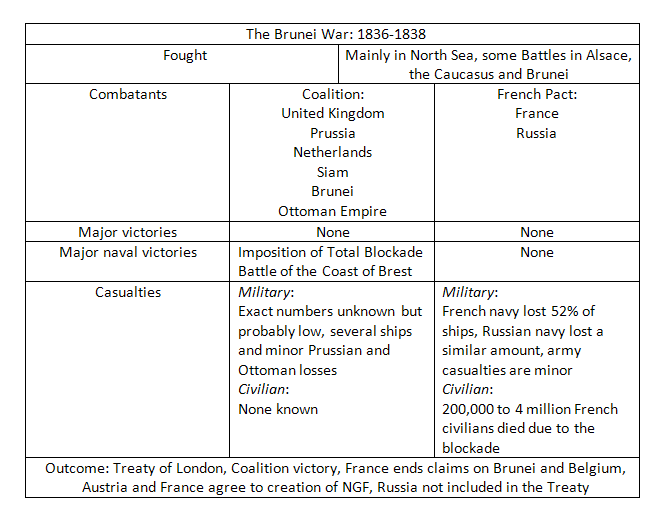
General statistics of the war
Statistics showing France's condition before and after the war
The tables above give an overview of the course and results of the war. One thing that immediately strikes the eye when analysing these statistics is the one-sidedness of the conflict. France could secure not a single real victory against the coalition and incurred economic damage that would need years to repair. The UK, on the other hand, took on two great powers with ease and suffered not a single civilian casualty. This goes to show that Britain’s position as the World’s leading power is currently not debateable. Further it proves that Sea power – despite the predictions of the Heartland theory – remains one of the most important tools in Geopolitics, equally as important as Land power. Consequently, all Nations that rely mainly on traditional Armies to project their might, such as Russia, Prussia, Austria and China, will have to rethink their strategies if they plan to come into conflict with the United Kingdom.
The London Peace Treaty of 1838
After two years of war, France clearly was beaten. With the odds against it, the population starving and without a light at the end of the Tunnel, the French government sued for Peace. The British, eager to capitalise on their victory, immediately demanded that the peace conference be held in London, being very well aware that the French could do nothing about it. Not surprisingly, the resulting Treaty is as British as its origin. It is one-sided, it is controversial and it seems to be more of a behavioural guideline for the entire world than just a peace accord. In essence it is attempt two for an ordered Europe. Will it work this time? Let us look at both sides:
The London Treaty
How it could work: Since the beginning of the Conference the sole idea of the London Treaty has already been criticised. One Mexican observer summed up the arguments against it when he said that it only was “an armistice for 20 years”. But these critics fail to acknowledge the power which is behind the Treaty: the United Kingdom. The United Kingdom is currently so strong and its enemies so feeble, that a violation of the Treaty simply is out of the question. The Royal Navy rules the seas and no power will be able to challenge this hegemony for at least the next 30 years. The World is on the verge of a Pax Britannica, a time of stability ensured by the might of the Crown. What failed in Vienna has been repaired by the might of London and however fast French revanchism grows, it will never be able to cross the Channel.
Why it could fail: On one hand it is true that the British signature is a mighty guarantee. But on the other hand even if the seal of the crown cannot control the winds of change that are sweeping through the World. For your convenience we have made a short list which details all of these new broad forces:
French revanchism: A case can be made that, even though France is beaten now, it will soon resurge as stronger and more militaristic power which, at least on the continent, will be a threat to all. In the statistics above we can see that the militaristic sentiment in the French population has increased by staggering 250.7%, which means that now more than 17.3%, or roughly 1.5 million French men, are in support of war for “la patrie”. These people will be susceptible to any madman who promises revenge and therefore are a considerable threat to the peace. In this respect it was very wise of the British to attach a date to the name of the Treaty as Europe might be in for quite some more London treaties. However, it has to be noted that 11.8%, or roughly 1 million men, have been so appalled by the war that they became pacifists and this group will surely attempt to counter-balance the warmongers.
The rise of Germany: One of the interesting things about the Treaty of London is its inclusion of a clause which justifies the creation of a North and a South German federation. This is despite the fact that Austria was hardly involved in the war. Seen from this angle it becomes clear that this clause is nothing more than an acknowledgement of Prussian power. Yet while the Treaty acknowledges it, it is unlikely that it will manage to contain it. With France beaten and Austria not looking too great either the path to a complete German unification is open and Prussia – that is for sure – will take it. And once it is there, only the UK will be able to stop it. But that would bear the risk of losing their strongest ally.
The economic consequences of the peace (and the war): One of the most controversial chapters of the Peace treaty is its economic consequences. A case can certainly be made that France is on the verge of economic collapse. It has lost more 2.7% of its male population, roughly 240,000 people (and that is a low estimate), its tax revenue has decreased by 33.8%, its cash reserves have plummeted by 36.4% and it currently has to support its industry with 1214.8 pounds per day. Further, as outlined in clause 2 of the treaty, France will lose its common market with Belgium. The result of this is that France has not only lost quite a bit of its economic potential but it also lacks the funds necessary to restart the economy. Accordingly it seems likely that France will be stuck in a deflationary gap for quite a while, facing low growth and high unemployment. This will not only mean that France will fall back behind the other great powers but it will create a demand slump for the entire world as for quite some time the French population will probably be unable to afford expensive goods.
However, equally one could argue that France’s problems are the world’s opportunities. With France in trouble, powers like the UK, the US and Prussia will have one competitor less to fear and therefore be able to increase their own market share. Also smaller nations and their companies, who previously have been forced into bankruptcy due to lower French prices, might now get a chance to expand. Yet, such development would also not be favourable for the maintenance of the current Balance of Power
The Russian question: Russia was the only nation involved in the war which was not invited to London. This has several reasons. For one, the old Tsar suddenly died and it took some time until a new administration was formed. Further the peace treaty hardly affects Russia at the moment and the British might deem it better to simply sign a white peace with the new Tsar once his power is ensured. However, it could equally be that Britain and Prussia are planning to dismantle the Russian monarchy altogether, in order to eliminate one more potential competitor for World Power. If this is the case then the world must get ready for a war which will make the Brunei war seem like a skirmish.


